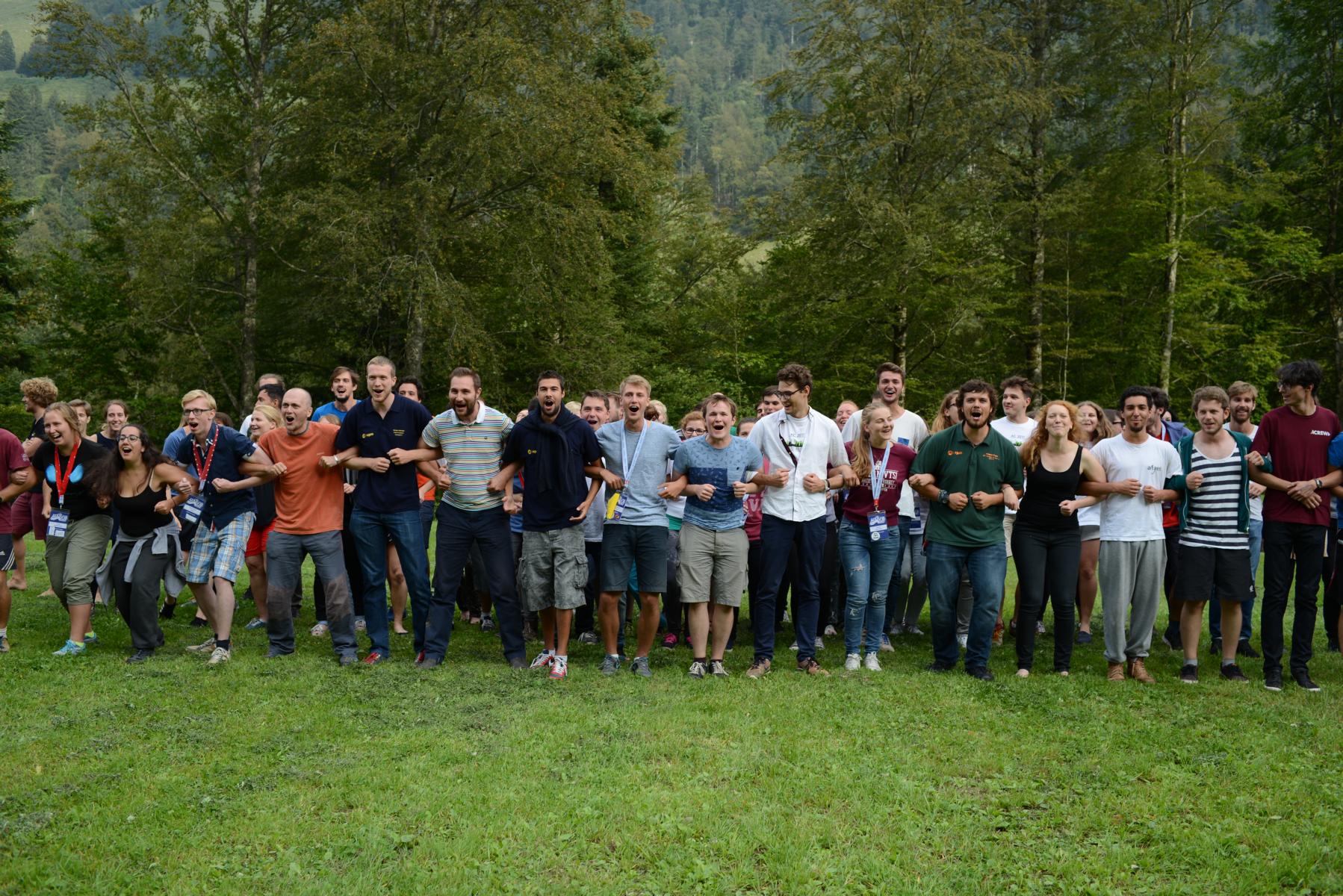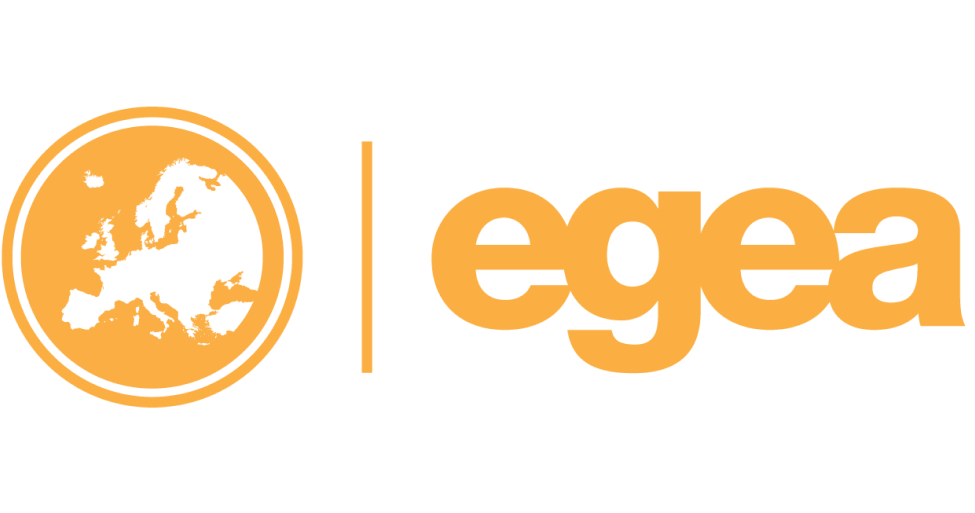
BE ACTIVE!
How to be active
There are many ways to be active in EGEA and enjoy your time as a European Geography Student the most! On this page we give you an overview of the most common opportunities in EGEA to keep you interested, engaged and challenged as an active EGEAn! In the end, it is completely up to you to choose the things you enjoy the most!
Entity level
EGEA consists of member entities (at the moment about 75) that are based in cities where one can study geography and are represented by their two Contact Persons. Entities belong to one of the four regions in EGEA, which are coordinated by the four Regional Teams (RTs). The whole association is managed by the Board of EGEA (BoE). Regional Teams and the Board of EGEA are part of the Organisation and Strategy Committee, which is a place for cooperation for all bodies of the association. It also includes Teams, Supporting Roles, Congress Organisers and the Financial Control Commission.
The General Assembly (GA), the highest decisive body of EGEA, takes place once per year during the Annual Congress. During the General Assembly, new entities are approved and inactive ones discharged. Important matters of the association are also discussed and voted upon via proposals. At the General Assembly, all approved member entities can cast their vote. The Board of EGEA is voted upon before the General Assembly via e-voting by all entities. Regional Contact Persons are voted upon by their region’s entities.
At the General Assembly, the Board of EGEA elect, the Regional Teams elect, the members of the Financial Control Commission and the Secretariat Coordinator are approved. There are also regional decisions, which are taken during the Regional Meetings at Regional Congresses or during the Annual Congress: every region appoints its representative for the Financial Control Commission and votes upon the organising entity of the Regional Congress. The organising entity of the Annual Congress is elected by the General Assembly. Representatives or coordinators of Teams, Website Administrators, Grant Team and Congresses are chosen by the respective body and don’t need the approval of the General Assembly.
Teams
EGEA’s Teams are groups of volunteers focussing on a specific mission at the European level of our association. In this way, teams do important work for the association. In a team, you work closely together with the Board, Regional Teams and Congress Organisers. Many EGEAns find teams a great way to get involved on the European level and to work in an international team. Also, it’s a place to get to know more EGEAns and to develop skills and competences.
Throughout the year you can sign up for joining a team, by filling out this form. Feel welcome to ask anything about the teams and becoming a member to vicepresident@egea.eu. You may also contact a team coordinator yourself personally or through their email. They will be happy to hear from you!
These are the different Teams in EGEA:
- The European Geographer; european.geographer@egea.eu – Mission: To publish the semi-scientific journal European Geographer periodically.
- External Opportunities Team; externalopportunities@egea.eu – Mission: To manage and promote opportunities for EGEAns (trainings, internships) in partner organisations.
- Finance Team; finance@egea.eu – Mission: To raise money for EGEA and foster sponsorships.
- Green Team; green@egea.eu – Mission: To create awareness about sustainability in EGEA and beyond.
- Inclusion Team; inclusion@egea.eu – Mission: To contribute to a welcoming and inclusive environment, especially for new members.
- Media Team; media@egea.eu – Mission: To manage the presentation of EGEA and the (social) media tasks in EGEA.
- Science Team; science@egea.eu – Mission: To promote science and to strengthen scientific activities in EGEA.
- Technical Support Team; technicalsupport@egea.eu – Mission: To manage the Webpage and Information Systems (Google suite e.g.) in EGEA.
- Training Team; training@egea.eu – Mission: To organize activities to work on personal development.
Projects
Besides the Teams, EGEA also has Projects. These are smaller working groups that are developing a new idea or project in EGEA. The project has a fixed end goal and ceases to exist after it is accomplished. Sometimes, a project becomes part of an EGEA team once it becomes a permanent project. To start a project, collect a group of volunteers and send an e-mail to vicepresident@egea.eu.
EGEA is a continuously developing association with the Teams and Projects being the motor of change. If you have an idea or want to implement something new, contact the Vice President and we will see how we can realise this.
Official positions
Board of EGEA
The Board of EGEA consists of six persons and is elected by the General Assembly for a term of one year. The Board
represents EGEA externally and acts as the executive body of the association.
Advisory board
The Advisory Board (AB) is a newly formed body in EGEA, which is responsible for providing advice and supervision to the Board of EGEA (BoE). You can find the mandate of the AB in the Protocol, Article 11B (link). The aim of the AB is to support the BoE in fulfilling their tasks, to ensure transparency and to raise the overall efficiency of the Association. The AB stays in frequent contact with the Board of EGEA through online meetings, checks minutes of the BoE meetings and provides advice in decision making whenever needed. However, the AB itself does not make any decisions for EGEA. The AB consists of experienced individuals, who are elected annually by the General Assembly.
FCC
The main task of the Financial Control Commission (FCC) is to check the financial reporting of EGEA during the financial year of the Association, which runs from July 1st to June 30th. In addition to the whole Association’s financial audit, the FCC also audits each year’s Annual Congress and Regional Congresses. The members of the Financial Control Commission, one from each region, are elected among EGEAns by the General Assembly.
You can find more information in EGEA Statutory Base article 13, and EGEA Protocol article 13 (see Official Documents).
Regional Teams
The four EGEA Regions are led by their respective Regional Teams, consisting of a Regional Contact Person and one to three Regional Assistants. They maintain the contact between the entities in their respective regions and the European Board.
Please contact your regional team with questions related to:
- New Entities
- Entity Management
- CP Tasks
- New members
- Membership Criteria
- Support Fund
- Regional Congresses

